
Vauxhall and I is the fourth studio album by English alternative rock musician Morrissey. It was released on 14 March 1994, by the record label Parlophone in the UK and Sire/Reprise in the US.

You Are the Quarry is the seventh studio album by English alternative rock singer Morrissey. It was released on 17 May 2004 by record label Attack, and was his first album in seven years following 1997's Maladjusted. The album was a huge comeback for Morrissey; all four of its singles reached the top 10 on the UK Singles Chart, and the album itself reached number 2. The album also reached number 11 on the Billboard 200, making it Morrissey's highest-charting album in the United States.
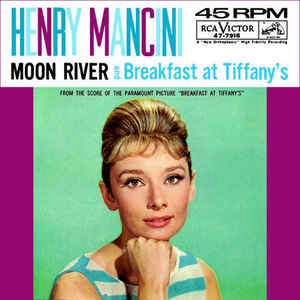
"Moon River" is a song composed by Henry Mancini with lyrics by Johnny Mercer. It was originally performed by Audrey Hepburn in the 1961 film Breakfast at Tiffany's, winning an Academy Award for Best Original Song. The song also won the 1962 Grammy Awards for Record of the Year and Song of the Year. In 1999, Mancini's recording was inducted into the Grammy Hall of Fame.
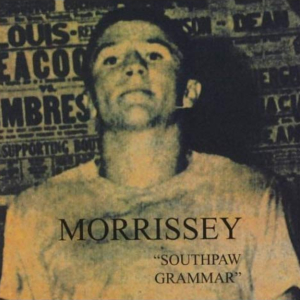
Southpaw Grammar is the fifth studio album by English alternative rock singer Morrissey, released on 28 August 1995 by record labels RCA in the UK and Reprise in the US.

"There Is a Light That Never Goes Out" is a song by the English rock band the Smiths, written by guitarist Johnny Marr and lead vocalist Morrissey. Featured on the band's third studio album The Queen Is Dead (1986), it was not released as a single in the United Kingdom until 1992, five years after their split, to promote the compilation album ...Best II. It peaked at No. 25 on the UK Singles Chart and No. 22 on the Irish Singles Chart. The song has received considerable critical acclaim; in 2014, NME listed it as the 12th-greatest song of all time. In 2021, it was ranked at No. 226 on Rolling Stone's "Top 500 Greatest Songs of All Time".
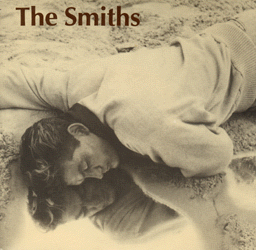
"This Charming Man" is a song by the English rock band the Smiths, written by guitarist Johnny Marr and singer Morrissey. Released as the group's second single in October 1983 on the independent record label Rough Trade, it is defined by Marr's jangle pop guitar riff and Morrissey's characteristically morose lyrics, which revolve around the recurrent Smiths themes of sexual ambiguity and lust. A different version, from the John Peel Show on BBC Radio 1, was included on the compilation album Hatful of Hollow in 1984.
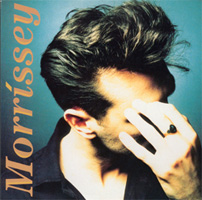
"Everyday Is Like Sunday" is the third track of Morrissey's debut solo album, Viva Hate, and the second single to be released by the artist. Co-written by Morrissey and former Smiths producer Stephen Street, the song was Morrissey's second release after the Smiths break-up. Morrissey was inspired lyrically by Nevil Shute's On the Beach to lament the drudgery of a seaside town. Street, who had originally sought to contribute his musical ideas to Morrissey to use for Smiths B-sides, also contributed bass guitar, which he contends was inspired by Echo & the Bunnymen.

"Go" is a song by American rock band Pearl Jam, released in October 1993 as the first single from the band's second studio album, Vs. (1993). Although credited to all members of Pearl Jam, it features lyrics written by vocalist Eddie Vedder and music primarily written by drummer Dave Abbruzzese. The song peaked at number three on the US Billboard Album Rock Tracks chart and reached the top five in New Zealand and Norway. "Go" received a Grammy nomination for Best Hard Rock Performance at the 1995 Grammy Awards. The song was included on Pearl Jam's 2004 greatest hits album, rearviewmirror .
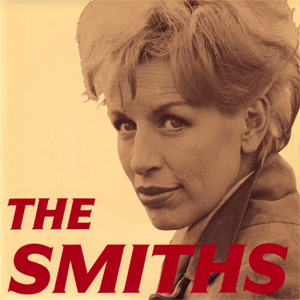
"Ask" is a song recorded by the English rock band the Smiths. It was released as a single on 20 October 1986 through Rough Trade Records. Credited to vocalist Morrissey and guitarist Johnny Marr, "Ask" is an ostensibly upbeat, positive pop song built around major chords. Its lyrics discuss shyness and encourage listeners to overcome their inhibitions. Its multiple guitar parts and complex production led to disagreements regarding its final mix. Craig Gannon, who at the time was rhythm guitarist for the group, has claimed he wrote – and was denied credit for – the song's chord structure.

"Hand in Glove" is the debut single by English rock band the Smiths, written by singer Morrissey and guitarist Johnny Marr. It was released in May 1983 on independent record label Rough Trade. It peaked at No. 3 on the UK Indie Chart but did not make the top 75 of the UK Singles Chart, settling outside at No. 124.
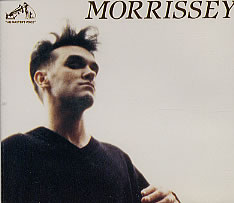
"Sing Your Life" is a single by English singer-songwriter Morrissey released in April 1991. It was the second single taken from the Kill Uncle album. On release this was Morrissey's lowest charting single in the UK charts, reaching only number 33. One of the single's B-sides was a cover version of "That's Entertainment" by The Jam which had backing vocals by Chas Smash, a.k.a. Carl Smyth the second singer of the band Madness. Vic Reeves also recorded backing vocals for the song, but they weren't included in the final version. He is thanked in the sleeve notes.

"Sheila Take a Bow" is a song by the English rock band the Smiths, written by Morrissey and Johnny Marr. Featuring a glam rock-style beat and guitar riff, the song was originally planned to feature Sandie Shaw on backing vocals, but Shaw's distaste for the song and Morrissey's illness during her session resulted in the vocals not being used.

"Let Me Kiss You" is a song written by Morrissey and Alain Whyte. It was recorded by both Morrissey and by Nancy Sinatra, both of whom released their version as a single in the United Kingdom on 11 October 2004. Both versions entered the UK Singles Chart, Morrissey's peaking at number eight and Sinatra's at number 46. Morrissey's version also reached number 19 in Sweden and number 44 in Ireland.
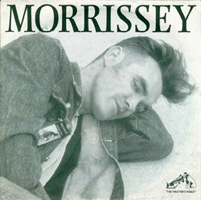
"My Love Life" is a song by Morrissey released in September 1991. It was a stand-alone single rather than taken from any studio album, although it was included on the compilation albums World of Morrissey (1995) and Suedehead: The Best of Morrissey (1997).

"We Hate It When Our Friends Become Successful" is a song by English singer-songwriter Morrissey from his third studio album, Your Arsenal (1992). It was released as the lead single from the album on 27 April 1992 by His Master's Voice (HMV). It was the first Morrissey single to be co-written with guitarist Alain Whyte and produced by glam rock guitarist Mick Ronson, known for his work with David Bowie as one of the Spiders from Mars. The song peaked at No. 17 on the UK Singles Chart and No. 9 in Ireland.
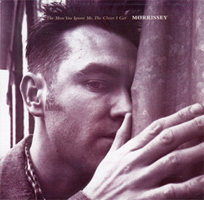
"The More You Ignore Me, the Closer I Get" is a song by English singer-songwriter Morrissey, co-written by Boz Boorer released as a single on 28 February 1994. It was taken from the then-unreleased Vauxhall and I album and was the first Morrissey single to be produced by Steve Lillywhite. The extra B-side "I'd Love To" features Kirsty MacColl on backing vocals.

"First of the Gang to Die" is a song co-written by Morrissey from his 2004 album You Are the Quarry. It was released in July 2004 as the second single from the album. It was written by Morrissey and Alain Whyte, the two being responsible for lyrics and music respectively. Following the success of "Irish Blood, English Heart", from the same album, the single reached the number six spot in the UK Singles Chart, giving Morrissey two top ten hits in a row for the first time since "The Last of the Famous International Playboys" and "Interesting Drug" both reached the top ten in 1989.
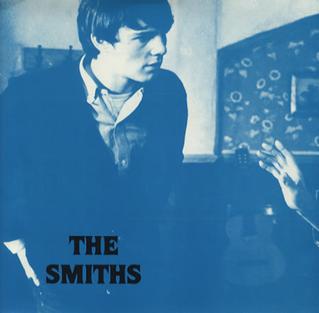
"Stop Me If You Think You've Heard This One Before" is a song by the English rock band the Smiths, written by singer Morrissey and guitarist Johnny Marr. The song was first released on the group's 1987 album Strangeways, Here We Come. Marr's music features a larger sound, courtesy of a 12-string Gibson ES-335, and one of his few guitar solos with the Smiths. Morrissey's lyrics allude to alcohol and deception.

"How Soon Is Now?" is a song by English rock band the Smiths, written by singer Morrissey and guitarist Johnny Marr. Originally a B-side of the 1984 single "William, It Was Really Nothing", "How Soon Is Now?" was subsequently featured on the compilation album Hatful of Hollow and on US, Canadian, Australian, and Warner UK editions of Meat Is Murder. Belatedly released as a single in the UK in 1985, it reached No. 24 on the UK Singles Chart. When re-released in 1992, it reached No. 16.
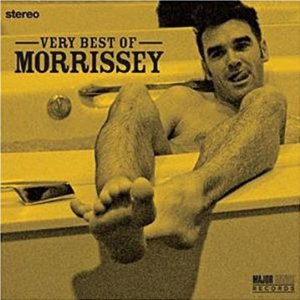
Very Best of Morrissey is a compilation album by Morrissey, containing material he released during the 1980s and 1990s on EMI. It was released on 25 April 2011.



















